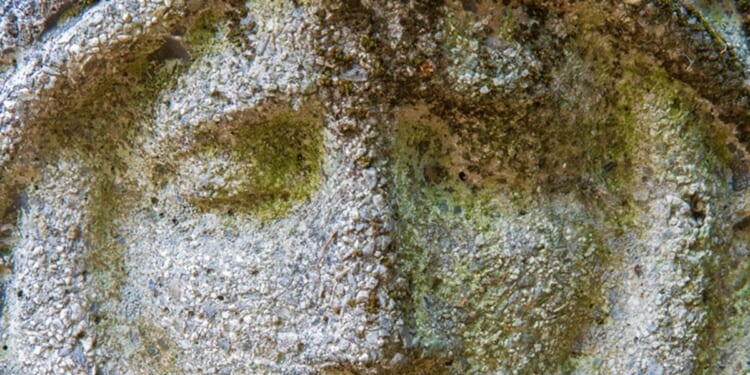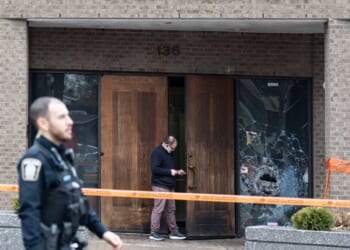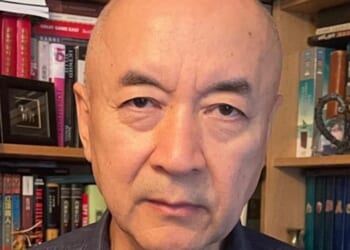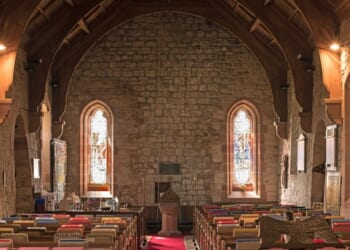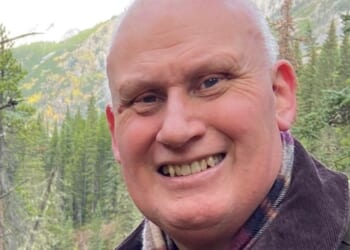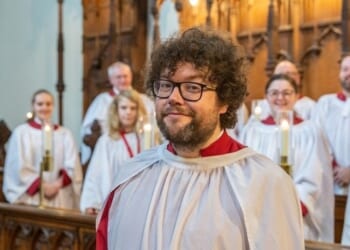WORK, exercise, sleep, work, exercise, sleep: why do we spend our time not doing the thing that we want to do most? When so much of life is given to labour and health in order to sustain basic needs, how can we find space and energy to pray and worship?
I am in my thirties; so I am overworked, I have back pain, and I am exhausted. This is why a priest who found me sitting in church one afternoon — I had missed the morning service — handed me a leaflet, “Retreat in Daily Life”. It is a six-day retreat, but you don’t go anywhere. It is for any denomination and can be done in person, or online, or both. Most importantly, it can be done outside full-time working hours, and without having to use up annual leave.
The opening and closing meetings are held in a group with others who have signed up. During the five weekdays of the retreat, you meet daily for 30 minutes — either in person or on Zoom — with a spiritual guide. There are an additional two (optional) evening workshops on prayer.
ONE of the first things that we did in our group meeting was to stand up. The purpose of this was to show yourself to God; to let God look at you; to feel God’s love for you. A passage from Isaiah was read twice — first, in the usual manner; then a second time, but slowly and phrase by phrase, with pauses between each phrase:
O, come to the water all you who are thirsty;
though you have no money, come!
Buy corn without money, and eat,
and, at no cost, wine and milk.
Why spend money on what is not bread,
your wages on what fails to satisfy?
Listen, listen to me, and you will have good things
to eat and rich food to enjoy.
Pay attention, come to me;
listen, and your soul will live.
(Isaiah 55.1-3)
THE two words that spoke to me were “thirsty” and “satisfy”. For all the work to earn wages, for all the rest required, for all the exercise needed to keep body and mind healthy, when or how could I make time to get to know Jesus, to read the Gospels, to pray with others? All I was thirsty for was God, and yet my life seemed bound to earning a living to survive. But here was a retreat designed for working people who feel the lack of any spiritual food.
My first meeting with my spiritual guide undid my habits. This week didn’t need to be a deadline or a pressure, my guide explained; let’s spend a week in prayer. When he said this, I knew that I had started off “unwise”, but I didn’t have the words to understand that until I read St Augustine. In his Confessions, he explains: “It is better for them to find You and leave the question unanswered than to find the answer without finding You.” Our answers to questions become more important than our connection with Christ. When I let go of finding answers to my questions, things fell into place.
IN THE prayer workshop, we were introduced to imaginative immersion. You are given a scene from holy scripture — in our case, the Gospel scene in which a woman touches the hem of Christ’s garment — and have to close your eyes and imagine the scene. Importantly, if possible, you imagine yourself in the scene. The workshop leader built up the scene in detail for us, and said not to force it, just let it happen, and if it didn’t happen, that was OK. Who are you in this scene? What are you experiencing?
When I forgot myself, I fell easily into the crowd: I was a bumbling disciple. I gave up on trying to prevent the crowd from jostling Jesus. I let myself fall back. I was watching Jesus. I was fascinated by the back of his head, his dark, unwashed hair, his wide, bony shoulders; fascinated by his normality but for the clarity in his look, the clearness of his face. The miracle itself was banal in this scene, a passing moment only. The real thing that amazed me was his walking in the street, just like anyone — so like anyone.
THE second prayer workshop introduced questions written on pieces of paper. We each picked up a question from the table at random. We then paired ourselves and sat next to someone we didn’t know. One person reads their question and tries to answer it to their partner. Then you swap. Then you do it over again with a different person. Finally, you swap questions with someone.
My questions were: “What do you do when prayer is hard?” “What does praying with others look like for you?” “What question would you ask God about prayer?” I learned that praying with others enables the stirring up of the gift of God in me so that I can encounter him in a unique way. I wanted more.
“OFTEN I tried to lift myself, only to plunge the deeper.” So said St Augustine of his long struggle with wrongdoing; and so life can seem through the weeks, months, years of work. But — as a priest put it, one Sunday morning recently — God doesn’t want perfect: he wants real. He can work with that. So stand up. Let God look at you.
Lord, Father, let me
find you, not the answers
to my questions.
Lord, Father, let me want
to find you more than
answers to my questions.
You are in me and I am in you.
Turn your face to my face.
Look at me.
Look at you.
Take you in, give
you out, or give out
Only, for you are in me and
I am in you.
Dr John Francis Davies is a writer who lives in the Lake District.
To find out about future retreats, visit: jesuitinstitute.org

